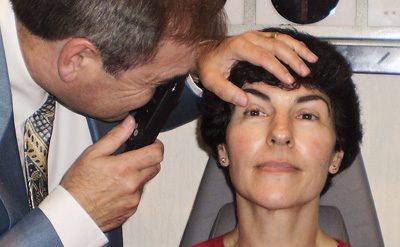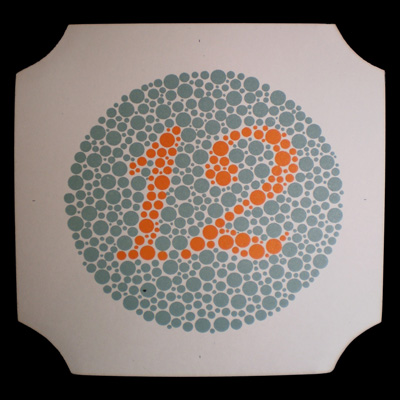



Most people, particularly the short sighted, report seeing floaters that appear as little black spots or 'flies' drifting across their sight. They move when moving the eyes and are particularly obvious looking at a plain pale background (like a cloudless sky). Normally they are of no significance but the sudden onset of a shower of floaters, particularly after having banged your head, or if you see flashing lights in your eyes or a 'curtain' or 'veil' in front of your eyes you should seek urgent opinion.
An eye examination will include the tests for glaucoma. These include examining the back of your eye (ophthalmoscopy), which is done on everybody, measuring the pressure inside your eye (tonometry) and checking your visual fields. Tonometry and visual field tests are recommended as good practice if you are at risk of glaucoma. From the results of these tests, your optometrist will be able to tell whether or not you have glaucoma. Over 95% of glaucoma sufferers are unaware of it because it is painless and only affects your sight very gradually. It is, therefore, very important to have your eyes examined regularly, particularly if you have a family history or are at a higher risk of glaucoma.
Glaucoma is usually treated using eye drops and/or an operation. The aim of current treatment is to reduce the pressure inside the eye.
This is when the lens inside the eye becomes cloudy. The treatment for this is surgery. A recent study looked at whether or not a particular dietary supplement reduced the incidence of cataract. It was found that it did not.
A recent study (the Age Related Eye Disease study - ARED study) showed that some dietary supplements may reduce the incidence of Age Related Macular degeneration.
People who are diabetic may find that their sight becomes blurry, so that they need a change in their spectacle prescription, or they may see parts of their vision missing. They are also more prone to cataract. If you get any of these symptoms you should consult your optometrist. More information on diabetes can be found on www.diabetes.org.uk